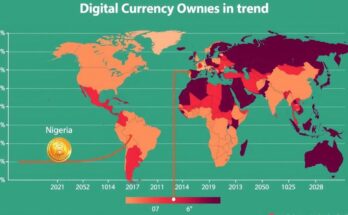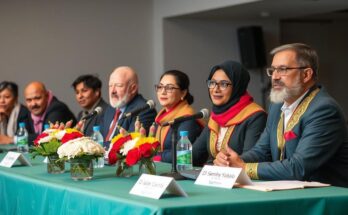On December 9, 2005, CAF approved US$786.5 million for projects in multiple South American countries, including Argentina, Bolivia, Colombia, Ecuador, Panama, and Venezuela. The funding aims to bolster infrastructure, enhance energy capacities, and improve basic services, while also promoting regional development and economic stability.
On December 9, 2005, the Andean Development Corporation (CAF) authorized financing totaling US$786.5 million aimed at supporting various infrastructure projects in Argentina, Bolivia, Colombia, Ecuador, Panama, and Venezuela. CAF President and CEO Enrique García emphasized that this funding represents a commitment to fostering a renewed regional development agenda, focusing on initiatives that promote integrated stability, efficiency, and social equity across the region.
For Argentina, US$210 million is designated for the Yacyretá Binational Hydroelectric Complex Termination Plan, which is set to enhance the capacity of the hydroelectric facility. The expected completion by 2010 will enable the complex to contribute an estimated additional 7,500 GWh to the interconnected power system of Argentina and Paraguay. This enhancement aims to bolster the reliability of electricity distribution, particularly in regions with significant industrial activity.
Bolivia is set to benefit from a US$84 million allocation to support the Third Transport Sector Support Program (PAST III), which includes significant upgrades to road infrastructure. The National Road Service (SNC) will oversee eight essential projects designed to improve and maintain Bolivia’s national roads, complementing previous financing initiatives executed in prior years.
In Colombia, a US$42.5 million loan will advance a potable water and sanitation program in the Cesar department, targeting improvements in service delivery for over 370,000 residents. This program is particularly innovative due to its long-term, regional approach that systematically addresses the basic service needs of the population using revenue generated from coal royalties.
Panama will utilize a US$80 million loan for its Highway Rehabilitation and Upgrading Program, managed by the Ministry of Public Works (MOP). This initiative aims to expand critical roadway infrastructure, providing substantial socioeconomic benefits by enhancing transportation networks which serve as vital conduits for production and employment.
Uruguay received a US$70 million approval for its Road Infrastructure Program – Phase II, intended to modernize key national routes. This investment includes a significant loan component structured for a 15-year term, which facilitates financing for the executing agency through partnerships with local institutional investors.
Additionally, CAF has sanctioned three lines of credit amounting to US$300 million for the Central Banks of Bolivia, Ecuador, and Venezuela, aimed at strengthening their liquidity and fostering macroeconomic stability across these nations. This move aligns with CAF’s vision of promoting productivity and competitiveness in both national and regional contexts.
The CAF’s funding approvals are part of a larger strategy aimed at enhancing infrastructure and social equity throughout Latin America, reflecting a commitment to regional stability and development. Infrastructure investments are crucial in developing countries, as they provide the backbone for economic growth, connectivity, and improved living standards. These projects are strategically selected to address pressing needs in various sectors, demonstrating that financial support is being directed toward initiatives with substantial socioeconomic impact. By financing programs that improve infrastructure, such as transportation and energy, CAF aims to stimulate economic activities, enhance quality of life, and promote regional integration. The organized funding approach allows for targeted interventions that support individual country objectives while contributing to broader regional goals.
The recent approval of US$786.5 million by the Andean Development Corporation (CAF) underscores its commitment to facilitating regional development in Latin America. By investing in critical infrastructure projects across multiple nations, CAF not only contributes to immediate improvements in essential services but also fosters long-term economic growth. The initiatives tailored for each country reflect a strategic emphasis on addressing specific regional challenges while maintaining a focus on integrated stability, efficiency, and social equity.
Original Source: www.caf.com




